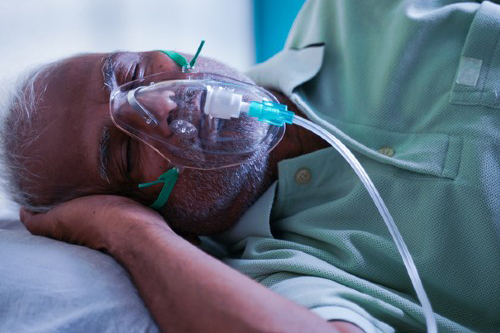The research study 'Aspirin after hospitalisation with Pneumonia to prevent cardiovascular Events randomised Controlled Trial' (ASPECT) led by the University of Bristol, sponsored by North Bristol NHS Trust (NBT) and supported by the Bristol Trials Centre, has been awarded funding of over £2.3 million by the National Institute for Health and Care Research (NIHR).
The randomised controlled trial will recruit 22,600 patients from over 60 hospitals across England. Findings from the four-year study will support future treatment guidelines, if appropriate, for patients with pneumonia. If aspirin is shown to be effective it could prevent up to 3,000 heart attacks and strokes a year in England alone.
Adults over 50 years of age admitted to hospital with pneumonia will be invited to take part in the trial. Those who agree will be split into two groups. Every person joining the study will have an equal chance of being in either group, so both groups will be made up of similar people.
One group will be prescribed a three-month course of low-dose aspirin, the other group will not. In all other respects, both groups will receive the standard pneumonia treatment. Participants will be followed up after three months.
The researchers will assess the participants recovery, specifically whether they have had a heart attack or stroke, or any serious side effects from the aspirin. This will be done by reviewing the 'usual care' health records of participants held by NHS hospitals.
Following up participants like this has been shown to be robust, reduces the burden on participants and makes the research much less expensive. To ensure participants are not getting side effects that would not be picked up in their health records, the research team will contact the first 2,000 participants, this follow up will include questions about whether they took the medication prescribed.
Dr David Arnold, NIHR Academic Clinical Lecturer in Respiratory Medicine in Bristol Medical School: Translational Health Sciences (THS) and Respiratory Registrar at NBT, who is joint lead of the trial, said: "Pneumonia is the commonest cause of unplanned hospital admissions worldwide. It has been shown that patients recovering from pneumonia have an increased risk of a heart attack or stroke due to the stress of infection on the body.
"Aspirin has been used for decades to reduce the chance of having a heart attack or stroke in patients at high risk of either event. We hope our trial will show it reduces the risk to patients with pneumonia and that it can save lives too."
Pneumonia is an inflammation of one or both lungs, usually caused by infection. Pneumonia is very common with 270,000 patients admitted as an emergency to hospital in England every year. Most people recover completely but some have complications. Two of the most significant complications are heart attack or stroke. Around 1 in 13 patients (8%) who are admitted to hospital with pneumonia have a heart attack or stroke within three months.
'Aspirin after hospitalisation with Pneumonia to prevent cardiovascular Events randomised Controlled Trial' (ASPECT) is a four-year trial.
